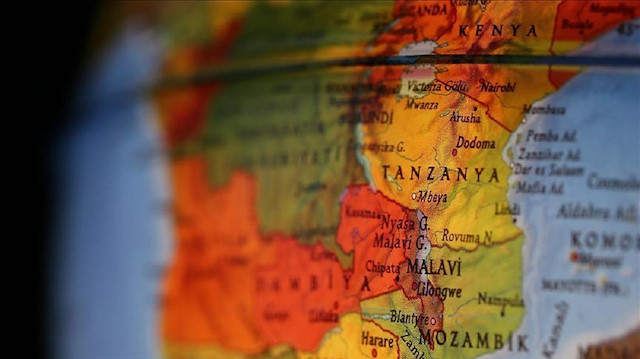

World Bank re-engages Tanzania on scrapped education plan
The World Bank will work with Tanzania to redesign a $300 million education project, a senior official said on Sunday, days after the lender said it cancelled plans for the project due to the country's controversial policies on pregnant school girls.
The World Bank told Reuters on Wednesday that it had not presented the education programme to its board for financing approval last month in part due to Tanzanian President John Magufuli's stance on pregnant girls in schools.
Tanzania has banned pregnant girls from attending state primary and secondary schools since 1961. Magufuli affirmed his commitment to this policy last year, saying school girls who become pregnant must be expelled and not allowed to return.
However, World Bank Vice President for Africa Hafez Ghanem told reporters on Sunday the lender had agreed with authorities to find ways for pregnant girls who are forced to leave school to still access education.
Ghanem said, following a meeting between the World Bank, Magufuli and other officials in Tanzania, the local government had committed to finding ways for the girls to return to school.
"That is what has changed," he said, when asked why the World Bank had reversed its decision to withdraw the project from board consideration.
However, he said the project would still be subject to board approval before the funds could be disbursed.
Leonard Akwilapo, Tanzania's Permanent Secretary at the Ministry of Education, told Reuters on Sunday that he could not comment on the World Bank's latest comments until he received an official statement.
However, he said Tanzania's policy was to ensure all school dropouts, including pregnant school girls, continued their education through different options such as the adult education system.
On Friday, the Tanzanian government said the World Bank had agreed to provide the $300 million loan to implement the project. The project includes the construction of class rooms, hostels, laboratories, staff houses and teaching facilities.
Tanzanian female teenagers are on average three times more likely than their peers globally to get pregnant, according to government data, a statistic researchers attribute largely to low access to contraception. In a September speech, Magufuli told Tanzanian women to not use birth control because the country needs more people and described women who limited the number of children they have as "lazy".
The World Bank's decision to re-engage the government on the education project comes amid increasing criticism from foreign donors over the Magufuli government's restrictions on the media and political parties and threats against LGBTI people.
Denmark on Wednesday was the first foreign donor to freeze funding to Tanzania over concerns about policies that threaten gay people and women.
The European Union also last week launched a comprehensive review of its policies toward the East African nation over concerns about rights abuses.
Magufuli -- a populist leader nicknamed "the bulldozer" -- has railed against foreign investors and promised to end corruption.
Ghanem also said the government told him they are open to discussing how a new statistics law will be implemented. The lender last month criticised the legislation, which will punish anyone who questions official statistics, saying the law will undermine the production of useful, high-quality data.
"We agreed that we will work together to avoid having in place a system that stops us and others from having access to credible, neutral and transparent data," he said. "If we don’t get reliable and credible statistics, we will be unable to do our job ... we made this clear to the government."
#Tanzania
#World Bank
#education
#plan






